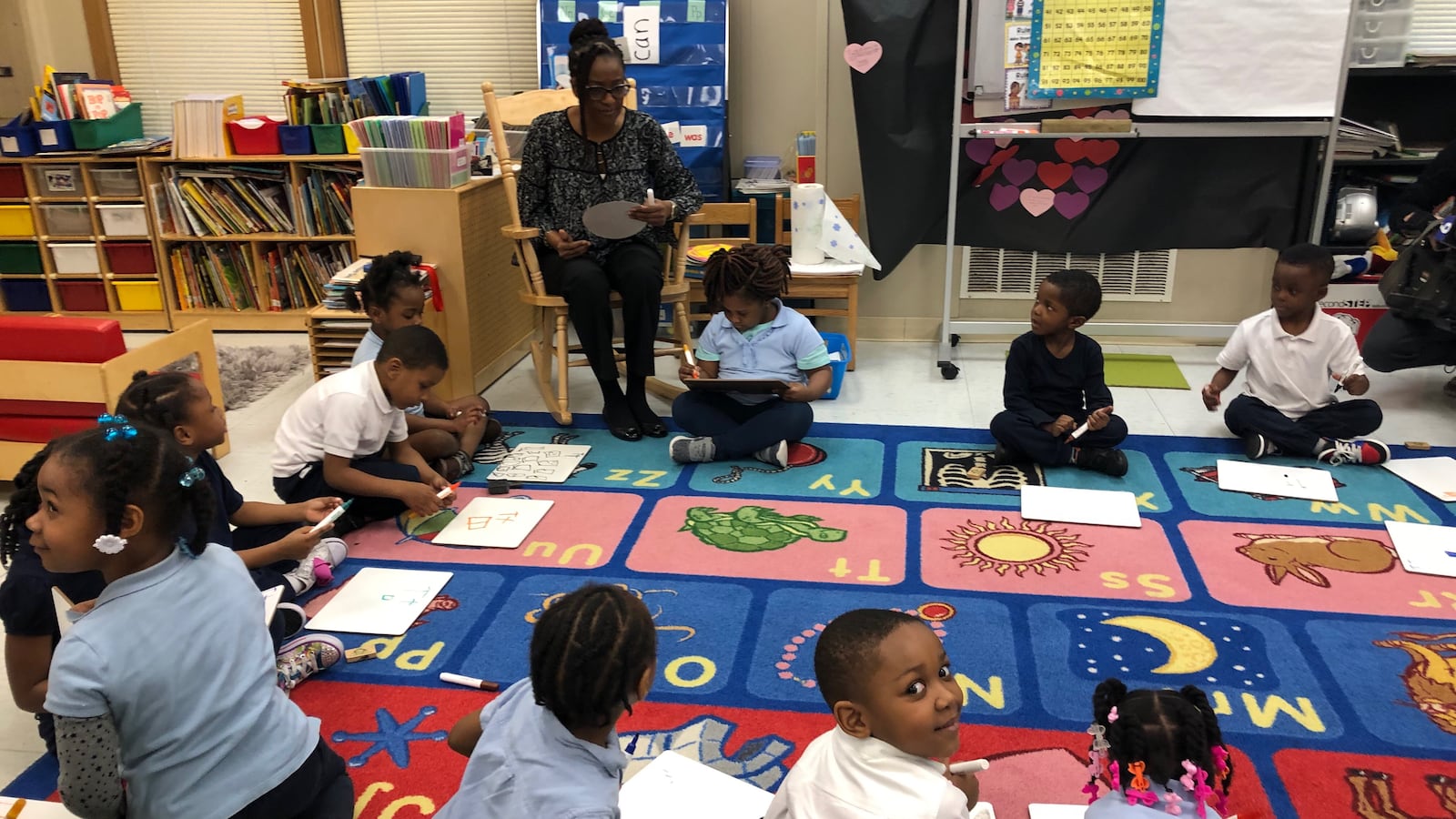One of the key architects of Chicago’s universal pre-K rollout has accepted the top early learning job in Massachusetts, leaving Mayor Lori Lightfoot a vacancy to fill at a critical juncture in the program.
The 4-year rollout was launched last year and became a signature education effort of Rahm Emanuel’s second term. But in a surprise move before it could be fully implemented, the former mayor decided not to run for a third term. Now Samantha Aigner-Treworgy, who helped design and steer the plan for Emanuel’s administration, is leaving to serve as Massachusetts’ statewide commissioner for early childhood. Her last day was Friday.
“I have been honored to lead the city’s vision for early childhood education over the last four years, and I am excited to see Mayor Lightfoot’s administration continue the innovative work of improving access and quality of early learning opportunities for all of Chicago’s families,” Aigner-Treworgy said in a statement.
A Lightfoot spokeswoman told Chalkbeat that the mayor is “committed to developing a sustainable, universal pre-K system.” Her education team, led by deputy mayor Sybil Madison, is working to identify a leader for the effort.
The new hire will report to Madison.
Whoever steps in to steer universal pre-K encounters a program divided. Universal pre-K is a popular idea among parents and early childhood advocates, but as schools have expanded the number of classrooms, the city has struggled to manage the disruption experienced by community centers and for-profit small businesses who also run preschools. Community programs have lost students and staff to Chicago Public Schools, which offers union-level pay and summer breaks.
The rollout has laid bare a complicated issue bedeviling many cities and states: in a business with thin margins, how to pay community providers enough without asking parents, who are often cash-strapped, to pay more.
Illinois is one of the least-affordable states for child care, a cost that often eclipses rent here, according to a report released earlier in the year.
A similar pay disparity in New York has led early childhood educators in private centers to inch toward a strike. A deal announced last week will raise the pay of community preschool workers, who are not public employees, and serve as a step toward salary parity between community settings and those in schools.
Chicago’s new chief also must confront a constellation of supply and demand issues across the city, with some schools logging unfilled seats while others have frustratingly long waitlists. Despite a universal application for most programs, the lack of clear information about options has confused parents about the different choices, which programs are free and which aren’t, and why they aren’t automatically guaranteed seats at their zoned neighborhood schools as they are in kindergarten.
To complicate things, different agencies oversee the two types of providers: The city’s Department of Family & Support Services works with community providers, and an early learning department within Chicago Public Schools runs school programs.
City Hall oversees the spending strategy for about $350 million in federal, state, and local funding for universal pre-K and other programs for young children.
Despite universal pre-K’s bumpy path, 21,000 Chicago 3- and 4-year-olds enrolled in some sort of program during the 2018-19 school year. That’s about half of the 45,000 who qualify.
Chicago plans to open 100 additional pre-K classrooms in schools this fall.
Lightfoot said during her campaign that her vision for universal pre-K would prioritize the city’s highest-need areas first and include “birth-to-5” zones with more services for younger children. But it is not clear how much her team will adhere to Emanuel’s rollout plan, which strives to create a pre-K seat for every 4-year-old in Chicago by 2021-22.

